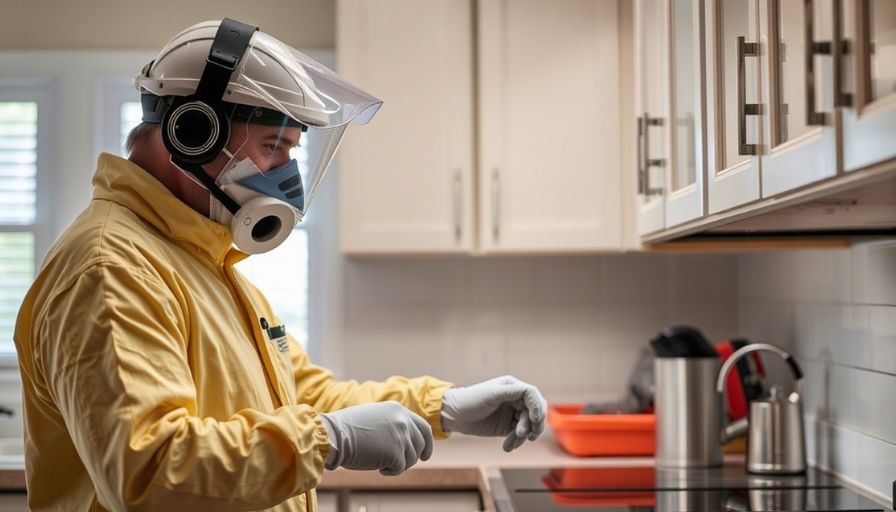Is your home prepared for seasonal invaders? What happens when temperatures drop, and rodents seek warmth? How serious can the consequences be if action isn’t taken early? These questions are often ignored until signs of gnawing, droppings, or scratching sounds reveal an unpleasant truth.
As temperatures fall, unwanted guests start searching for shelter. Homes and commercial spaces become targets due to their warmth, food supply, and hidden corners. Let’s discuss how addressing this problem proactively can prevent a minor issue from becoming a costly disaster.
Early Action Reduces Long-Term Damage
Hiring a professional rodent exterminator early in the season can save time and money. Waiting until signs of infestation appear can lead to structural damage, contamination, and even health hazards. Rodents chew through insulation, electrical wiring, and wood framing. This behavior increases the risk of fires and costly repairs. Tackling the issue early stops the problem before it escalates.
Hidden Entry Points Can Go Unnoticed
As temperatures drop, small openings become access points for nesting. Cracks in foundations, gaps around windows, or open vents are easy pathways. These entry points often remain hidden behind walls or under flooring. Regular inspections in early fall can reveal vulnerabilities before they’re exploited. Sealing these gaps early reduces the chance of interior nesting.
Infestations Multiply Rapidly
Rodent populations can grow at an alarming rate, especially when conditions are favorable during seasonal transitions. Here’s a closer look at how a small issue can spiral out of control:
- Quick Reproduction Cycles: Rodents can reproduce every few weeks, with litters of 6–12 pups at a time. One pair can turn into dozens in just a month or two.
- Increased Indoor Activity: The search for warmth and food drives more rodents indoors during cooler months. This increases the chances of indoor nesting and frequent sightings.
- Delayed Detection: Signs like droppings or sounds often appear late. By then, the infestation may already be extensive.
- Nesting in Hidden Areas: Wall voids, attics, and crawl spaces are common nesting spots. These areas remain undisturbed, making it easier for populations to grow unnoticed.
Food Contamination Poses Health Risks
Rodents often invade pantries, cabinets, and food storage areas. They chew through packaging and leave behind droppings and urine. This contamination introduces bacteria and allergens into the home. Illnesses like salmonella or hantavirus can be transmitted through contact. Keeping food storage secure and scheduling inspections helps maintain a safe environment.
Rodent Activity Disrupts Daily Life
Unwanted intrusions can cause more than just physical damage—they can disrupt daily routines and mental well-being. Below are key ways these disruptions affect households:
- Persistent Noises at Night: Scratching or scurrying sounds from the attic can disturb sleep and create anxiety. These noises often signal hidden activity that worsens over time.
- Unpleasant Odors Indoors: Nests or droppings can cause strong, lingering smells in walls or vents. These odors are difficult to eliminate and affect indoor air quality.
- Damaged Belongings: Furniture, wires, and storage boxes are often gnawed or torn. The damage can be costly and emotionally upsetting.
- Pet Anxiety and Agitation: Dogs and cats may bark, whine, or behave oddly when they sense movement. Their unease often reflects unseen intrusions.
Rodents Target More Than Just Homes
Commercial buildings, warehouses, and office spaces are equally at risk. Stored products, electrical systems, and HVAC units offer attractive hiding places. In businesses, infestations can lead to property loss and damaged reputations. Early preventive services ensure that operations continue without the risk of contamination or shutdowns.
Professional Services Offer Lasting Solutions
While home remedies may seem convenient, they often fall short of addressing the root cause. Professional services offer more reliable, long-term solutions through expert approaches:
- Limitations of DIY Approaches: Store-bought traps or repellents may only tackle surface issues. Hidden nests and entry points usually remain untreated.
- Comprehensive Inspections: Professionals inspect the entire property, including crawl spaces, basements, and attics. This helps identify entry zones and high-risk areas.
- Customized Treatment Plans: Each building has unique vulnerabilities. Experts tailor solutions based on layout, material, and surrounding conditions.
- Seasonal Scheduling Advantage: Booking services in early fall ensures availability and avoids long wait times during peak infestations.
Preparation Is Better Than Reaction
Taking steps now prevents frustration later. Once signs appear, the problem may already be advanced. Inspections, sealing entry points, and working with professionals early offer peace of mind. This proactive mindset ensures that when temperatures drop, indoor spaces remain secure, clean, and undisturbed.
Before cooler days arrive, take the necessary precautions to protect homes and businesses. Acting early saves on repair costs, prevents contamination, and reduces stress. A rodent exterminator can identify risks and implement effective strategies well before the problem surfaces. Waiting until the activity is noticed may be too late. Preventive care ensures a peaceful season indoors, free from unwelcome visitors.
